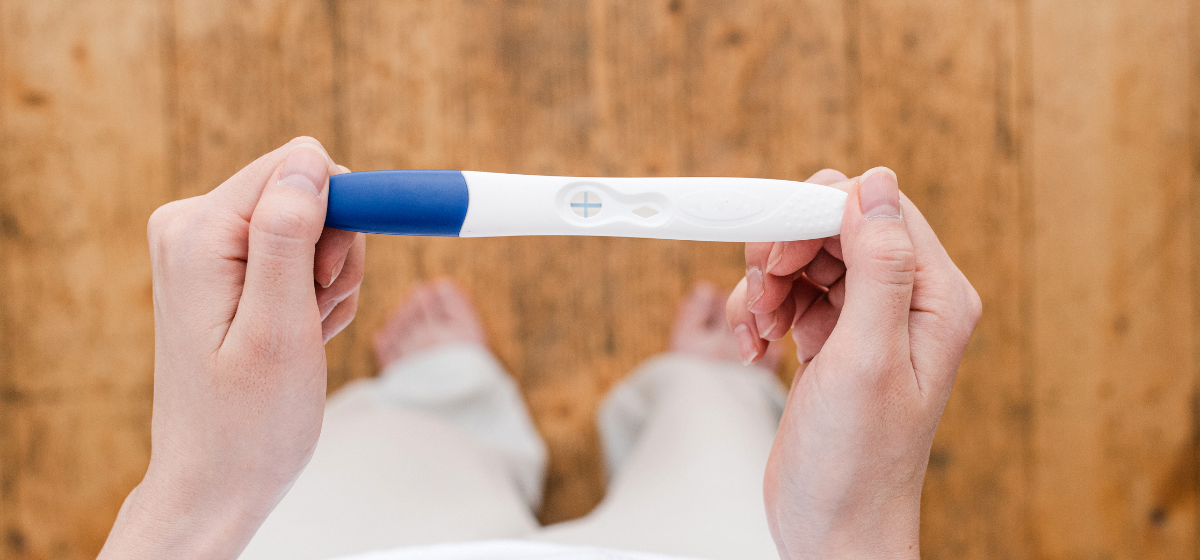Congratulations! You just found out you are having a baby! What do you do next? It is time to schedule your first pre-natal appointment. Let's take a look at what you can expect at your first prenatal appointment and what list of questions you should have to ask your healthcare provider.
IN THIS ARTICLE:
What to Expect at Your First Prenatal Appointment
How Will My Due Date Be Calculated?
What Other Tests are Done During the First Prenatal Visit?
What Should I Expect During My First Pregnancy Exam?
What Questions Should I Be Prepared to Answer During My First Prenatal Visit?
What is a List of Questions that I Should Be Prepared with to Ask During My First Prenatal Visit?
What to Expect at Your First Prenatal Appointment
The first prenatal visit, which is typically scheduled during your first trimester (sometime between the 6th to 8th weeks of pregnancy), is the first of many appointments with your obstetrician/gynecologist (OB/GYN) or midwife during pregnancy.
The main goals of the first prenatal visit are to confirm that you are pregnant, determine your baby’s due date, review important medical history including social, psychological, and family history, have prenatal blood tests drawn, undergo a full physical exam, and for you and pregnancy medical provider to get to know each other. It’s recommended that you call your OB/GYN’s office to schedule the first prenatal visit shortly after you have a positive home pregnancy test. Going to your first prenatal appointment is one of the best ways to ensure you will have a healthy pregnancy and understand prenatal care. In most cases, you will be able to bring a partner or support person with you to your first prenatal visit.
How is Pregnancy Confirmed?
During your first appointment, your doctor will conduct a urine test where you will give a urine sample for an in-office pregnancy test and have your blood drawn for analysis of your B-hCG level. B-hCG is a hormone that rapidly increases during the first few weeks of pregnancy. B-hCG levels help to confirm that you have a viable pregnancy and can also give a rough estimate of how many weeks along you are at the time of the test. The most common cause of a lower than expected B-hCG level is a chemical pregnancy, or very early miscarriage. Higher than normal B-hCG levels can be seen in twin and triplet pregnancies. If your initial B-hCG level does not correspond with how many weeks pregnant you are, you will need to have repeat levels drawn in the upcoming days to weeks.
How Will My Due Date Be Calculated?
Your due date is based on the first day of your last menstrual period (LMP). If you know the date your last period started, your due date is calculated by adding 7 days to your LMP, and then subtracting 3 months. For example, if your period started on 2/14, your due date will be 11/21 (2/14 + 7 days = 2/21 and 2/21 – 3 months = 11/21). If there is any question of when you had your last period, your OB/GYN or midwife will be able do an in-office ultrasound to help determine your due date.
What Other Tests are Done During the First Prenatal Visit?
Other prenatal labs done during this visit include blood and Rh typing, hemoglobin and hematocrit levels (used to screen for anemia), and testing for all of the following infections that may impact one’s pregnancy: hepatitis B, rubella, syphilis, gonorrhea, chlamydia, varicella (chicken pox), and HIV. Prenatal tests that are done later in pregnancy include the oral glucose tolerance test to screen for gestational diabetes (end of 2nd trimester) and a vaginal swab for group B strep (mid to late 3rd trimester). During the first prenatal visit you should discuss all other tests that will need to be done in checkups later in pregnancy, including the timing of your ultrasounds and whether or not you might qualify for genetic testing for any genetic disorders or health history to be aware of.
What Should I Expect During My First Pregnancy Exam?
Your medical provider will examine your heart, lungs, breasts, and abdomen, and, in most cases, will do a pelvic exam. If you are due for a Pap smear, this will also be done during the first prenatal visit. Blood pressure monitoring is very important, as having high blood pressure at baseline puts you at a high risk of pregnancy complications and health problems. You will also be weighed during this visit and at every subsequent prenatal visit. Most weight gain occurs during the 2nd and 3rd trimesters of pregnancy, so women are typically at/near their pre-pregnancy weight during their first prenatal visit. Expected pregnancy weight gain depends on one’s pre-pregnancy weight, and is as follows:
Average weight: 25-35 lbs., Underweight: 28-40 lbs., Overweight: 15-25 lbs., Obese: 11-20 lbs. Pregnancy weight gain expectations are higher for multiple gestation pregnancies (twins and triplets).
What Questions Should I Be Prepared to Answer During My First Prenatal Visit?
An important part of this initial visit is to share your complete medical and surgical history, your obstetric and gynecologic history, the names and doses of all medications and supplements you are currently taking, family medical history (any medical conditions/diseases that run in your family), your vaccination record, your blood type, and whether or not you have a history of past or current mental health issues. This is also a good time to share if you currently smoke, drink alcohol, and/or use any illicit drugs. You will also be asked if you have experienced domestic violence or have any current safety concerns. Based on the information you share, your healthcare provider will help to coordinate any necessary specialist referrals, consultations, and/or future testing that are indicated for you to have the healthiest pregnancy possible.
What is a List of Questions that I Should Be Prepared with to Ask During My First Prenatal Visit?
It’s normal to have a LOT of questions during the first prenatal appointment, especially if it’s your first pregnancy. Although there are not any “right or wrong” questions to ask, some of the most commonly asked questions during early pregnancy include the following:
- “What can I do to relieve morning sickness and discomforts?”
- “What prenatal vitamins or supplements do I need to take (like folic acid)?”
- “What medications and supplements should I avoid while pregnant?”
- “Do I need to avoid anything else?”
- “How much weight should I gain?”
- “When will I be able to find out my baby’s gender?”
- “When will I start to be able to hear my baby’s heartbeat?”
- “Can I keep getting my hair dyed or highlighted?”
- “Is it okay for me to travel?”
- “Do I need to stop drinking coffee?”
- “Can I continue to exercise and/or do I need to modify my physical activity?”
- “Will I be seen by the same healthcare provider for every prenatal visit?”
- “Who will deliver my baby?”
- “Who should I call or what should I do if I start to have any bleeding, spotting, or other complications?”
For more information, please see our previous articles “Questions to Ask Your Doctor, by Trimester” and “Top Twelve Most Common Pregnancy Questions Answered.”
Prepare for Baby's Arrival
You will continue to have regular prenatal visits with your OB/GYN or nurse midwife after your first pregnancy appointment. Prenatal visit are usually scheduled every 4 weeks during the first and second trimesters, and then every 1-2 weeks for the remainder of pregnancy until delivery. These are extremely important for pregnant women’s health. Each prenatal visit is a good opportunity to ask any questions you have and to give updates on symptoms you are experiencing and/or any changes in your health, especially if you are pregnant for the first time.
Don't forget to obtain your insurance approved breast pump from Aeroflow Breastpumps. Find out if you qualify for a breast pump at little-to-no cost through insurance, simply complete our Qualify Through Insurance form. Using a breast pump will allow you to provide the best nutrition to your baby even when you are separated. Aeroflow Breastpumps carries top name brands such as: Medela, Ameda, Evenflo, Spectra, Motif, Lansinoh, and more!
References
- American College of Obstetrics and Gynecologists (ACOG). Having a Baby. Last updated July 2022.
- American College of Obstetrics and Gynecologists (ACOG). Routine Tests during Pregnancy. Last updated July 2021.
- American Pregnancy Association. Your First Prenatal Visit. Accessed 2/13/2023.










